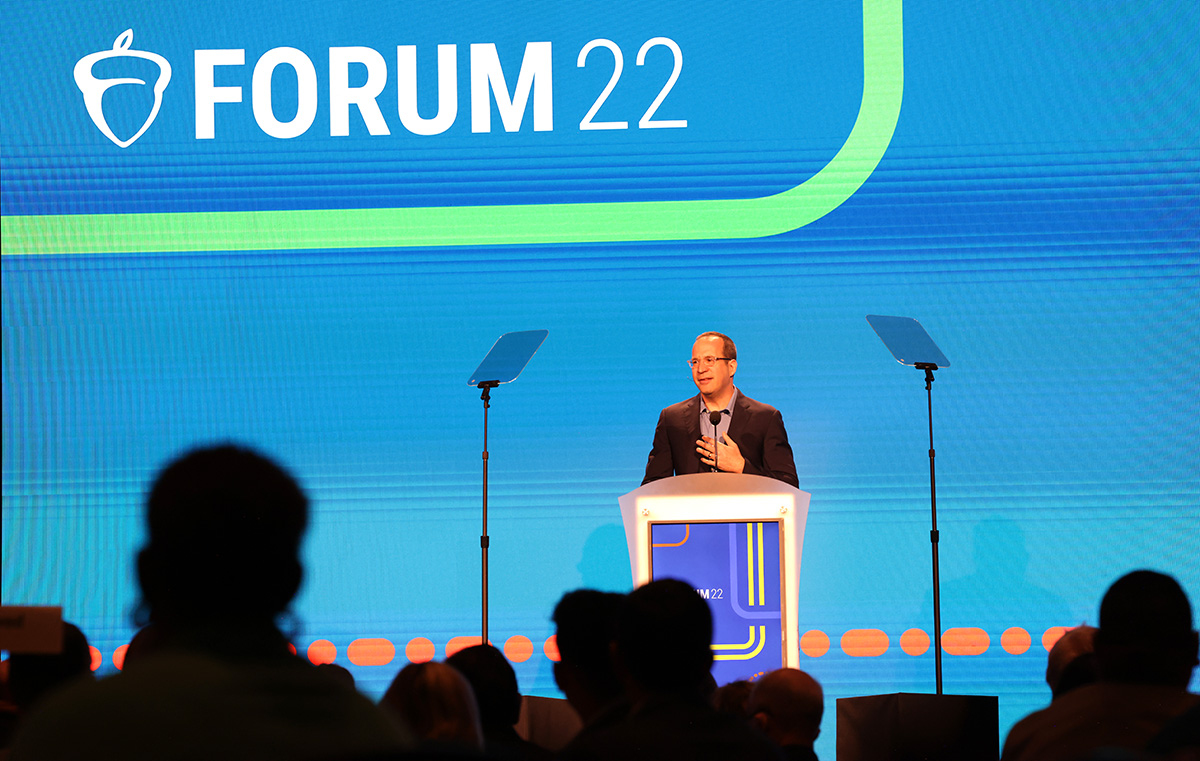College Board Forum 2022
David Coleman Calls on College Board Members to “Change the Invitation” at Forum 2022

One of the greatest challenges in American education is a lack of engagement from the “vast middle” of students, said College Board CEO David Coleman during the opening plenary of the 2022 Forum. Fewer than half of students report feeling fully engaged in school, which limits their opportunities and leaves their talent untapped.
We need to make what students experience in high school far more relevant. If we want more students to engage, it’s time to change the invitation.
David Coleman, CEO, College Board
Putting relevance at the center of education means offering coursework that appeals to today’s students, thinking creatively about how to assess progress, and making sure every student feels recognized and invited to the table. “We need to look at what we offer through the eyes of students,” Coleman said, describing the way abstract fields like computer science and calculus can seem daunting to many high schoolers. “When no one is coming to your party, it might be time to change the invitation.”
Considering what courses might appeal to a broader population of students led the College Board to launch AP Computer Science Principles, a project-based class that invites students to solve a problem using the principles of computing instead of diving straight into dense coding language. It proved hugely successful in bringing more women and minority students into the field, creating a more inviting pathway to further computer science courses.

Applying the same welcoming approach across the curriculum is an urgent task, Coleman said, so more students see their organic interests reflected in advanced coursework. Over the next few years, the AP Program will launch AP African American Studies and explore courses for students interested in healthcare, business, and entrepreneurship, and other fields that can help build a broader pathway to advanced classes. “It becomes not just one class with a teacher, but a pathway forward with a mentor,” Coleman explained.
Relevance and approachability drove many of the design decisions for the new digital SAT, as well. The test is shorter, the readings are more direct, and the practice exams mimic the experience of the real thing. “No more surprises on test day,” Coleman said. “We want all students to walk into the exam with as much confidence as possible.” In pilot tests so far, students have overwhelmingly reported greater comfort with the digital exam.
Another crucial part of changing the invitation is reaching students earlier, giving them more time to explore their options and shape their ambitions. The College Board has put significant resources into reengineering BigFuture and Search to connect students with colleges and career planning resources earlier in high school, aiming to provide a steady stream of encouragement on the path to graduation and beyond. “Students need to hear from colleges along the way,” Coleman said. “They need to know the world is interested in them.”
That sense of recognition, of being seen and valued, is crucial for reengaging the students who may feel uncertain about their path.
“There is far more talent than we can see,” Coleman concluded. Changing the invitation is how we recognize that talent and build a school experience where all students feel invited and welcomed.

